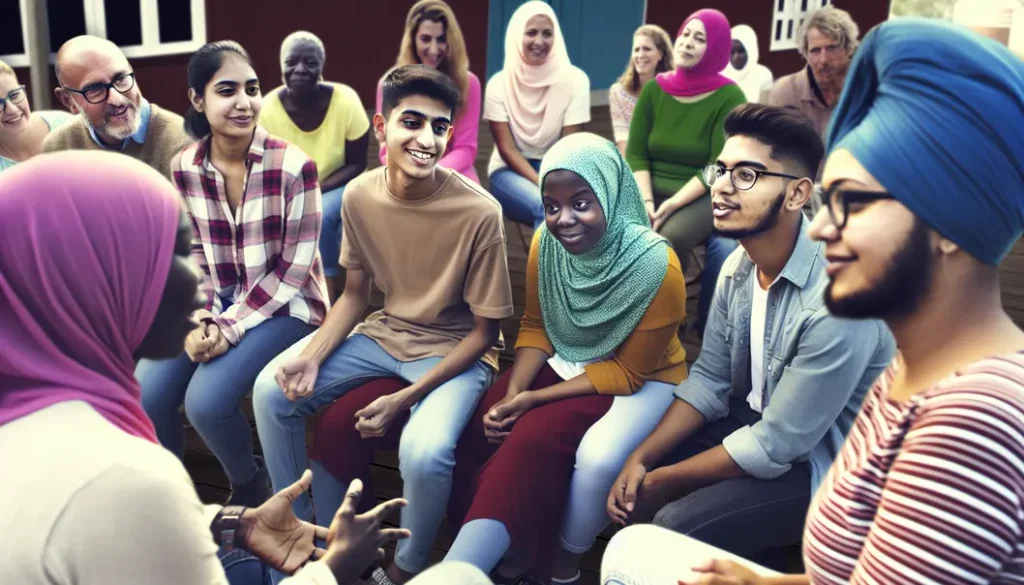
Empowering the Future: The Vital Role of Youth Mental Health First Aid
In today’s complex world, the importance of youth mental health cannot be overstated. With rising mental health challenges among young people, the implementation of Youth Mental Health First Aid (MHFA) has become crucial. This training equips individuals with the knowledge and skills to provide initial support to young people experiencing mental health challenges. By preparing adults and peers to recognize and respond to mental health issues, Youth MHFA fosters a supportive community, ultimately leading to improved mental health outcomes for the younger generation.
Understanding Youth Mental Health First Aid
Youth Mental Health First Aid (MHFA) stands as a fundamental aid in understanding and addressing the mental and emotional challenges faced by younger individuals. Youth MHFA is designed specifically to educate people on how to help an adolescent experiencing a mental health or addictions challenge or is in crisis. The goal of this training is not only to support adolescents in timely and effective ways but also to foster an environment conducive to open discussions about mental health issues.
Key Components of Youth MHFA include learning to identify, understand, and respond to signs of mental illnesses and substance use disorders. The training enhances participants’ skills to help adolescents in crisis safely. By incorporating real-world interactions and role-play scenarios, it ensures that the theoretical knowledge conveyed can be applied practically.
One critical element imparted through training is the Early Identification of Symptoms. Participants learn the warning signs of mental health problems, equipping them to act promptly. Early intervention, facilitated by informed peers or adults, can significantly alter the trajectory of a young person’s life. It can help reduce the severity and impact of mental health issues.
Reducing Stigma is another crucial benefit of Youth MHFA. Stigma surrounding mental health issues often prevents individuals from seeking the help they need. Training sessions are aimed at destigmatizing mental health challenges and equipping participants with the language and attitudes necessary to support young individuals compassionately and effectively.
Promotion of Mental Health Awareness also plays a significant role. As individuals better understand mental health issues, their capacity to foster a supportive environment increases. This awareness leads to improved attitudes towards mental health problems and a more supportive community that acknowledges the importance of mental well-being just as much as physical health.
In conclusion, Youth MHFA not only equips individuals with the necessary skills to respond to signs of mental illness or crisis among young people but also plays a vital role in transforming societal approaches to mental health. By training a wide array of participants, from educators to counselors and peer leaders, MHFA initiatives create a more informed and proactive society capable of fostering the mental well-being of its youth.
The Impact and Benefits of Youth MHFA
Youth Mental Health First Aid (MHFA) constitutes a pivotal intervention strategy, particularly focusing on equipping individuals with the necessary skills to support young people experiencing mental health challenges. This training has not only transformed lives through direct intervention but also fostered a more empathetic and knowledgeable community poised to tackle mental health issues among its younger members.
Through practical training sessions, participants learn how to notice signs of mental distress early, communicate effectively, and provide appropriate support. For instance, a recent initiative in a suburban community saw secondary school teachers receiving Youth MHFA training. Post-training, these teachers reported a marked increase in their confidence when approaching distressing conversations, which, according to follow-up studies, resulted in a 40% reduction in student referrals to mental health services. Encouragingly, these students showed improved academic and social engagement, highlighting the dual benefit of MHFA: individual empowerment and institutional enhancement.
From an employment perspective, individuals trained in MHFA find themselves better equipped to empathize and intervene without escalating situations, a skill highly valued across various sectors. Enhanced empathy and communication skills are, without a doubt, intrinsic benefits that extend beyond professional boundaries into personal growth and relationships.
Furthermore, communities that embrace MHFA training often witness a significant reduction in stigma associated with mental health issues. This shift is crucial as stigma is a formidable barrier preventing many young people from seeking help. Community-wide understanding and support for mental health can transform public perception, making mental health conversations as normal as those about physical health.
Moreover, the societal benefits of widespread mental health literacy cannot be overstated. Empowered with knowledge and skills, trained individuals serve as vital points of contact within the community, capable of guiding young people towards professional help when necessary. This proactive approach not only alleviates immediate suffering but also contributes to a more robust public health framework capable of addressing mental health proactively rather than reactively.
In addition to immediate community impacts, studies suggest that training in MHFA leads to broad societal benefits. An informed public is a healthier public, where mental well-being is prioritized and maintained through community effort and understanding. The introduction of MHFA has sparked conversations around mental health that were once taboo, and its widespread acceptance is a testament to its effectiveness and necessity.
Thus, Youth MHFA is more than an educational tool; it is an essential component of modern health education, fostering an environment where young people can thrive, supported by knowledgeable and empathetic adults.
Final words
Youth Mental Health First Aid is a powerful initiative that equips individuals with essential skills to support and guide young people through mental health challenges. By fostering an understanding and empathetic community, Youth MHFA helps to mitigate potential crises and promote healthier outcomes for youth. Embracing this training can significantly enhance mental well-being and strengthen the support systems necessary for the next generation to thrive.
Ready to enhance your workplace with expert mental health support? Contact the WPI team today and let our experienced professionals guide you to success with Mental Health First Aid training and tailored workplace interventions—or simply book a Mental Health First Aid course online!
Learn more: https://workplaceinterventions.com.au/mental-health-accredited-training-courses/
About us
WorkPlace Interventions is located in the Melbourne CBD, delivers training Australia-wide, offering both Face-to-Face and Online delivery options. We specialise in delivering Mental Health First Aid courses, LivingWorks ASIST training courses, and the WorkSafe Return to Work Coordinator training course. WorkPlace Interventions is a place where not only do we work hard, but we do it with heart. We believe in excellence, innovation, quality, and passion, and we keep our promises. Our reputation is our business, and our clients are our partners, we have a vested interest in meeting your needs, and that’s what makes WorkPlace Interventions uniquely qualified to help you succeed.
